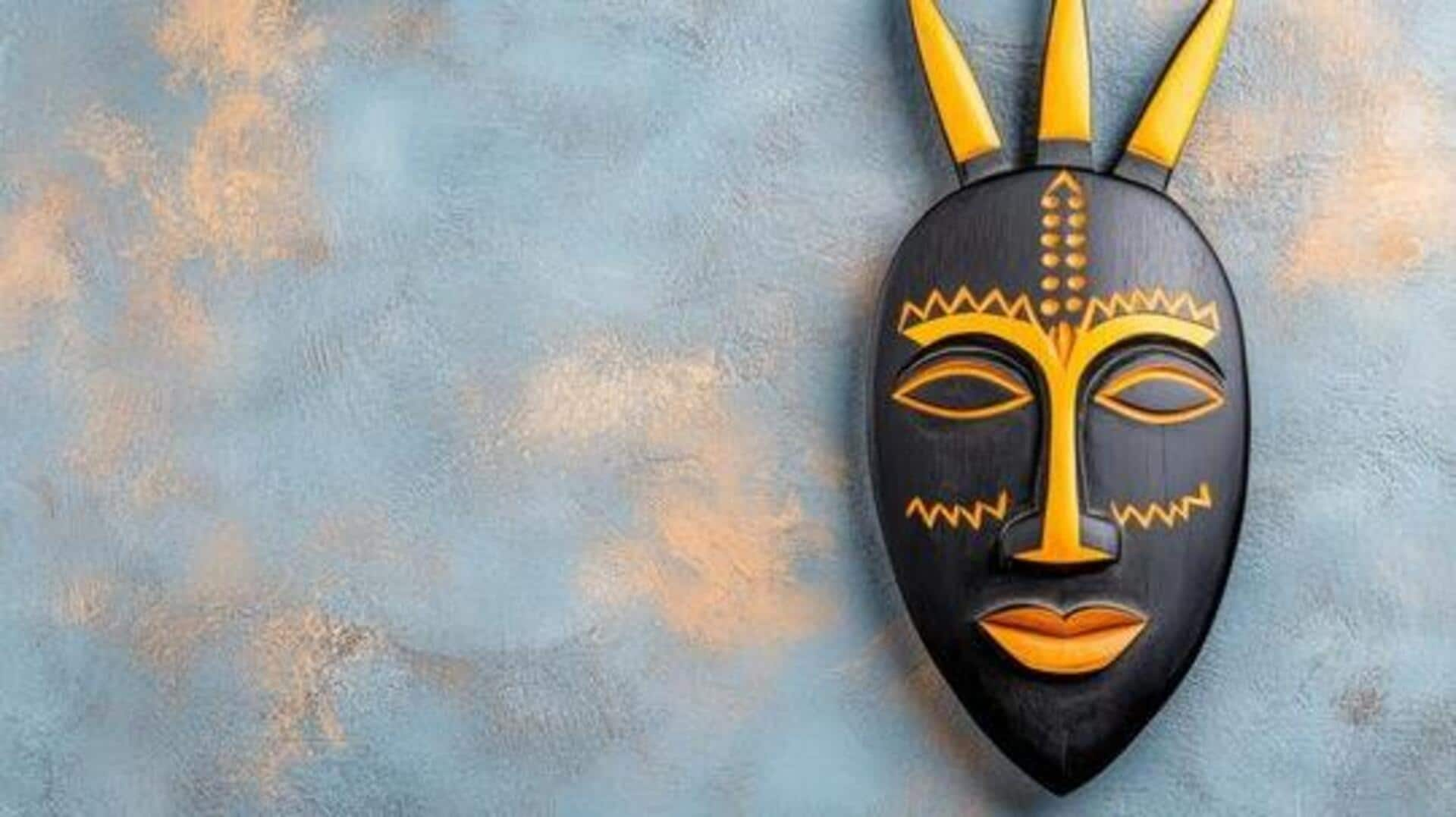
African masks: Types, significance, and history
What's the story
African masks are an important part of the continent's cultural heritage, representing different tribes and traditions. These masks are not only artistic expressions but also have spiritual and ceremonial importance. Each mask style is unique, representing the diverse cultures spread across Africa. Knowing these styles gives you an insight into the rich history and traditions of African communities. Here are some noteworthy African mask styles you should know about.
Baule style
Intricate Baule masks
Baule masks come from the Baule people in Cote d'Ivoire. These masks frequently depict human faces with refined features, such as almond-shaped eyes and slender noses. They are commonly employed in rituals to pay tribute to ancestors or during harvest celebrations. The artistry includes elaborate carvings, highlighting the talent of Baule artisans.
Fang style
Bold fang masks
Fang masks, hailing from the Gabon and Cameroon-based Fang people, are famous for their stretched out faces and fierce features. These masks typically have a fierce look with big foreheads and heavy chins, representing power and spirituality. They play an important role in religious rituals, particularly in those meant to pay homage to ancestors. This practice reflects the deep-rooted relationship of the Fang community with their ancestors.
Dan Style
Expressive Dan masks
Dan masks, originating from Liberia and Cote d'Ivoire, are made by the Dan people. These masks are known for their expressive features, such as wide-open mouths or exaggerated facial expressions. Used mainly in entertainment dances or initiation ceremonies, they represent both the artistic creative spirit and the deep cultural significance of the Dan community. This tradition reflects the rich cultural heritage and artistic diversity of Africa.
Yoruba style
Symbolic Yoruba masks
Yoruba masks, originating from Nigeria's Yoruba tribe, are steeped in symbolism. They are mostly used in religious festivals and traditional performances, where they often represent deities or historical figures. These masks feature elaborate designs with vibrant colors symbolizing different aspects of Yoruba mythology, reflecting the tribe's rich cultural heritage and artistic diversity.
Punu style
Unique Punu masks
Punu masks are from southern Gabon among the Punu people. Known for their distinctive white faces, these masks represent purity or spirits of ancestors. With calm expressions, closed eyes, and high-domed foreheads, these masks are often decorated with elaborate patterns resembling hairdos of Punu women during special occasions like weddings or funerals.